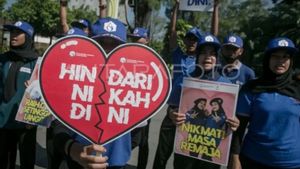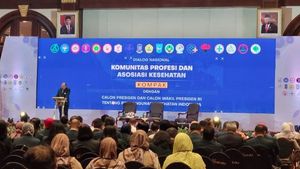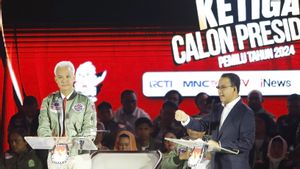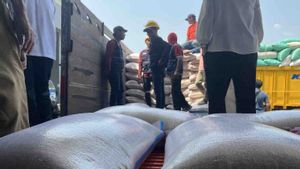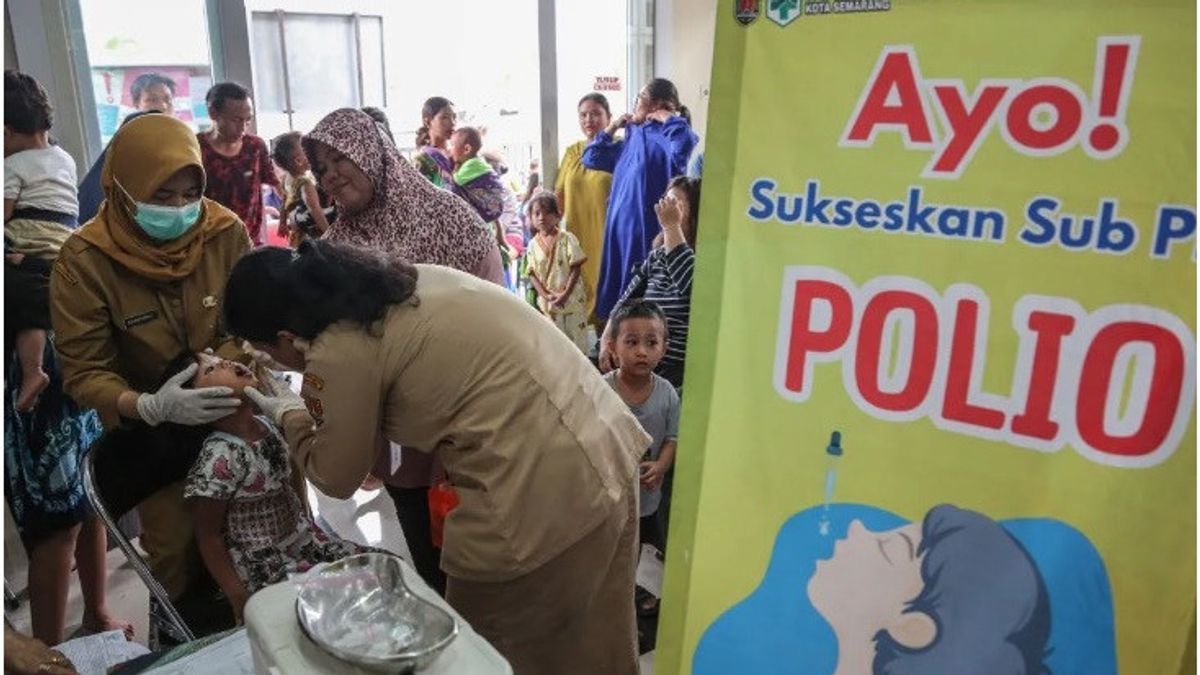
JAKARTA The polio case that occurred in East Java caught the attention of the public in early 2024. The government through the Ministry of Health has determined the status of an Extraordinary Event (KLB) so that polio cases do not spread further.
Three children in East Java and Central Java reportedly suffered from acute depletion (AFP) caused by the Type 2 Polio Virus. In addition, from the results of the lab in their surrounding area, there were nine other children who tested positive even though they did not show symptoms.
The Ministry of Health immediately established the status of the polio KLB and held the polio National Immunization Sub Week (PIN) simultaneously throughout Central Java, East Java, and Slemen Regency, Yogyakarta, which was held in two rounds, namely on January 15, 2024 and February 19, 2024.
The target for this polio sub-PIN is children aged 0-7 years regardless of the previous immunization status. This means that every child in this age range must be immunized even though the immunization is complete.
Citing Care, polyomytelitis (polyo) is an infectious disease caused by the polio virus. This polio virus can attack the nervous system and cause paralysis and even death. This polio virus will enter the body through the mouth, which comes from contaminated water or food, and then the virus will develop in the digestive tract.
Although not showing symptoms, people infected with polio can still transmit polio to others. This disease can be experienced by anyone but generally attacks children aged under five, especially those who have not immunized polio. If not seriously treated, this disease can cause permanent paralysis.
Indonesia has actually been declared free of polio ( Polio Eradication) on March 27, 2014 together with WHO member countries in Southeast Asia. However, polio reappeared in Aceh in October 2022 which was found in children aged 7 years and 2 months. This is the first incident since Indonesia was declared polio free in 2014 and the government immediately declared the status of KLB polio.
polio cases occurred again in January 2023, when two boys in North Aceh were infected with polio. One month later, a four-year-old girl suffered from polio in Purwakarta, where seven children were also found to be positive for polio.
Polio is a serious and dangerous disease. The transmission is also fairly easy and fast through saliva splashes when coughing and sneezing. In addition, the polio virus can also spread through direct contact from the infected person. Due to the rapid transmission, the government immediately made the status of the polio KLB even though only one case was found.
"The spread of polio is very fast and easy. When a child is infected with the polio virus, he can become paralyzed within 7-21 days after being infected," said Dr. Sean Edbert Lim to VOI.
관련 항목:
Doctor Sean said that polio cases occurred again in a number of areas due to a number of factors. Among them is the coverage of polio vaccines in children under the age of five or not complete. In addition, the lack of cleanliness can also be one of the causes, such as not washing hands with clean water, defecating (BAB) at times, using water (infected) as a source of drinking.
The low coverage of polio vaccines has become a concern in itself. According to data from the Ministry of Health in 2020, the coverage of the provision of four-dose oral polio vaccine (OPV4) is an average of 86.8 percent. This figure is below the national target of 95 percent.
Aceh became the lowest province with 51.7 percent, then West Sumatra 57.9 percent. Meanwhile, the coverage for the polio injection vaccine (IPV) is much lower, which is only 37.7 percent. OPV4 coverage decreased again in 2021, which was 80.2 percent, while the IPV increased to 66.2 percent. OPV4 immunization rate in Central Java is 77.2 percent and East Java is 81.1 percent.
"The emergence of polio cases can also be due to a decrease in public awareness about the importance of immunization, and more and more parents do not want their children to be immunized," said dr. Sean.
The COVID-19 pandemic is said to be one of the causes of the decline in immunization coverage. During the pandemic, many parents are forced to postpone or even miss the immunization schedule due to concerns about contracting the coronavirus in health facilities.
Misinformation related to vaccines also contributes to the low coverage of immunization. The issue of vaccine safety and halalness makes many parents hesitate to immunize their children. "In addition, many people also feel they don't need it because they think polio has disappeared or there are no cases in their area," he added.
Dr. Sean said, continuous collaboration between health workers, community leaders, the general public who understand, the media, and government to provide educational programs, counseling, health campaigns regarding vaccines. In addition, the public also needs to be reminded about the importance of increasing personal hygiene, sanitation, and surveillance in order to resolve this polio outbreak.
The English, Chinese, Japanese, Arabic, and French versions are automatically generated by the AI. So there may still be inaccuracies in translating, please always see Indonesian as our main language. (system supported by DigitalSiber.id)




